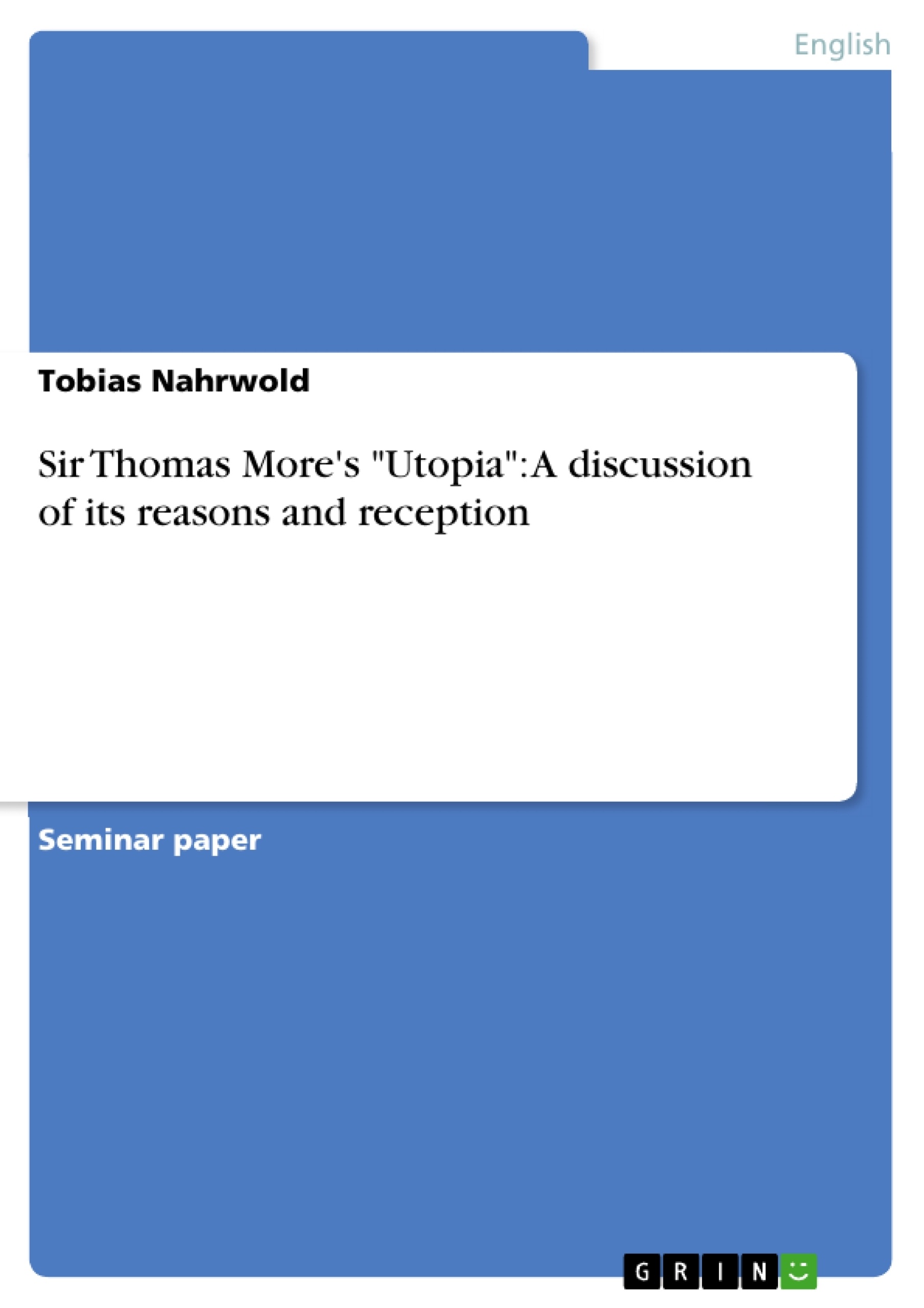In this term paper, More's living circumstances, thus the origins of his Utopia, are outlined in the first chapter. The reception of Utopia in More's times is discussed subsequently. It is concluded that More produced an intelligent indirect critique of England and Europe in his lifetime. More might have done this to stimulate the reader’s vision as well as to escape censorship. However, More’s life is a contradictory one, and I will infer that every reader has to make up his own thoughts on this book which contains a revolutionary body of thought.
Table of Contents
- Introduction
- Origins
- Tudor England
- Humanism
- The Life of Sir Thomas More
- On the Reception and Themes of Utopia
- The Perception of Utopia's Authenticity in the 16th Century
- On Government and Social Structure
- The Root of All Evil: Money and Private Property
- The Striving for Happiness, Knowledge and 'Good' Pleasures
- On Religion
- Conclusion: Utopia offers an Intelligent Criticism on the Then State of Europe and Proposals for Reforms
Objectives and Key Themes
This term paper aims to explore the possible reasons behind Sir Thomas More's writing of Utopia, focusing on the historical and intellectual context of his time. It seeks to understand the reception of Utopia during More's lifetime, examining its impact and the interpretations of its message.
- The historical context of Tudor England and its influence on More's work.
- The impact of the humanist movement on More's ideas and writing.
- The examination of themes presented in Utopia, including its social structure, economic system, and religious perspectives.
- The analysis of More's intention in crafting Utopia, including its potential as a critique of contemporary society and a vehicle for social reform.
- The reception of Utopia in the 16th century, considering its perceived authenticity and the varied interpretations of its message.
Chapter Summaries
- Introduction: This chapter introduces Utopia as a complex text with various interpretations. It highlights the importance of understanding More's biography and the historical context in order to decipher the author's intentions and the reception of his work.
- Origins: This chapter explores the historical and intellectual context of More's life. It covers the political landscape of Tudor England, the rise of Humanism, and the events that shaped More's personal life and career.
- On the Reception and Themes of Utopia: This chapter examines the reception of Utopia in the 16th century and analyzes the various themes presented in the text. It explores topics such as Utopia's perceived authenticity, its proposed social structure, the role of money and private property, the pursuit of happiness and knowledge, and the treatment of religion.
Keywords
This paper explores the key themes and concepts presented in Sir Thomas More's Utopia, focusing on Tudor England, Humanism, social critique, social structures, economic systems, religious perspectives, and the reception of Utopia in the 16th century.
What was the historical context of Thomas More's "Utopia"?
It was written during the era of Tudor England, heavily influenced by the rise of Humanism and the political challenges of the 16th century.
What is More's view on private property in "Utopia"?
More identifies money and private property as the root of all evil, proposing a communal social structure in his fictional society.
How was "Utopia" received in the 16th century?
The work was seen as a revolutionary body of thought, often interpreted as an indirect critique of European government and social structures.
Why did Thomas More write "Utopia" indirectly?
Writing Utopia as a fictional travelogue allowed More to stimulate vision for social reform while potentially escaping strict censorship.
What role does religion play in More's fictional society?
Utopia presents specific religious perspectives that reflect More's humanist values and his thoughts on religious tolerance and practice.



